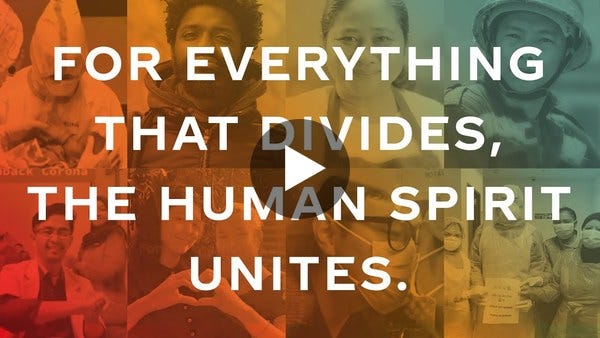Tippets by Taps - Issue #132
New week, new issue! As always, I hope this finds you and yours safe and healthy during this pandemic. This week we look at the end of shelter in place, the future of American cities, being ‘away from keyboard’, fiction vs. reality in spy movies and more. Enjoy!
Location Data Reveals Uptick in Visitation - Are People Ready to Return to Normal?
This week will mark a major milestone in Americas response to COVID-19. As shelter-in-place orders lapse and states begin to chart their own path to reopening, we are at the beginning of the next phase of the crisis whether the government wants to or not. According to Foursquare data:
Gas station traffic has returned to pre-COVID-19 levels in the Midwest, and in rural areas throughout the country,
Foot traffic to quick service restaurants (QSRs) has risen over the past several weeks
Grocery store visits are down to normal levels, after being 30-40% higher than normal in late March as people tried to stock up for a long shutdown
People are certainly ready to return to normal. Whether they should is an entirely different question.

Grocery store visits are returning to normal.
How the Pandemic Will Change Americans Streets
As I talked about here, COVID-19 is going to have an impact that lasts well beyond shelter in place and the slow road to recovery. Just like the world was forever changed post 9/11, the reset post COVID-19 will create an entirely new definition of normal. This essay from Derek Thompson of the Atlantic articulates one of the more reasonable post-COVID worlds that I have read of late.
We are entering a new evolutionary stage of retail, in which big companies will get bigger, many mom-and-pop dreams will burst, chains will proliferate and flatten the idiosyncrasies of many neighborhoods, more economic activity will flow into e-commerce, and restaurants will undergo a transformation unlike anything the industry has experienced since Prohibition.
What’s more, by holding on through the next few months, America’s largest companies will be in a stronger position to incorporate millions of workers when the recovery picks up.
Most people I spoke with expected cities to enact social-distancing rules that will limit restaurant capacity in order to discourage large crowds…But at a deeper level, these adaptations will create a whole new ambience, making restaurants more awkward, more expensive, and less fun. One of the joys of getting a drink in a crowded space is the soundtrack of a hundred strangers’ conversations humming underneath the intimacy of a private exchange.
Murdering reality: the spurious spies of fiction
I must admit to something: I’m a sucker for spy stuff. I can’t pin exactly what, but the combination of political drama, action, clandestine activity and the general mystique of the spy. This past weekend I finally got to the series finale of Homeland (note: the first season of the show was incredible, and it had fallen off in recent years, they wrapped it very nicely) and am waiting for season 3 of Jack Ryan on Amazon. Now, while the movies and TV shows are all glitz and glam, this article by John Sipher, former station chief and CIA’S senior intelligence offer, paints a rather different picture of what reality as a spy looks like.
Hollywood lacks the wit and the will to convey the complexities of the secret world…The underpinnings of the spy game are exactly what Hollywood (and literature) does best: human relationships. Real espionage is about the human factor. It explores flawed individuals, trust, betrayal, ego, manipulation, secrecy, psychology, cowardice, bravery and vulnerability, all placed within the pressure cooker of international politics and national security.
That said, most productions fall into the trap of providing constant motion and action. Of course, intelligence agencies accrue some benefit in allowing the myth to remain. A smaller intelligence service like the British SIS benefits from the reputation of James Bond. Many a potential source may have been swayed to speak to British diplomats and spies having been brought up with the fantasy that the British maintain some special skill in the art of espionage. Likewise, foes of the Israelis probably lose some effectiveness due to their need to hide in fear of being assassinated.
The list of “tropes in the espionage genre that drive practitioners crazy” in the article is awesome. Well worth a read.
The Courage to Be Alone
A wonderful essay that spans parenting, pandemics and courage.
[William] James was writing about how hard it is to see someone else’s inner light — the thing that keeps them illuminated in dark times — especially when we are fixated on our own lives. We pass one another, intent on ourselves and our own problems, never imagining the burning fire under the dark coat.
Someday, if she finds herself in isolation and I am not there, she will have her own songs and some courage based in these walks and this circuitous make-believe (as good as any philosophy), a rhythm of talking and walking etched in her memory to repeat on her own, an inner life rich with voices and creatures and the remembered pressure of our hands. I hope so. Her grip suddenly drops mine as she begins to run toward home. We are learning together how to be alone.
To The Human Race
Hard to argue that Coca-Cola’s marketing isn’t very good at what they do. Unlike a lot of other ones…

To The Human Race
Quote I’m thinking about: “There is no greater agony than bearing an untold story inside you.” - Maya Angelou



